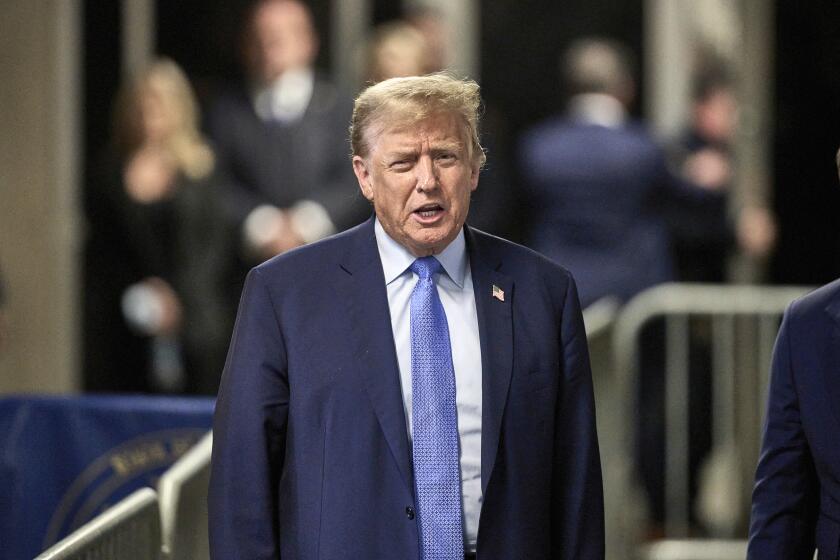NAACP Chief Warns of Society With More Anger Than Power
The Oklahoma City bombing has grimly reminded America of what hate can do when mixed with blind anger in those who feel left out of “participatory democracy,” NAACP Chairwoman Myrlie Evers-Williams said Tuesday.
In her first official visit to Capitol Hill since her election three months ago, Evers-Williams decried what she said was the way race is used by conservative politicians and “new exclusionists.” She said they are encouraging the type of hatred that claimed victims of all colors in Oklahoma City.
Evers-Williams specifically cited the social spending cuts urged by House Speaker Newt Gingrich (R-Ga.) and other Republican leaders. They are “declaring open season on all the disadvantaged” with their “contract with America” legislative agenda, she said.
“Imagine the monstrous consequences if Newt succeeds in making starvation public policy in a society where the poor are heavily armed,” Evers-Williams said.
“Oklahoma City should be a clarion call to once again recognize the horror and futility of using violence to achieve political ends . . . . We can say that hate knows no color. And we can also say that America is not as colorblind as it says that it is. It is time for us to check our moral compasses,” she said.
Evers-Williams came here to raise money for the National Assn. for the Advancement of Colored People, which has a $3.2-million debt. She also spoke words of encouragement to Dr. Henry W. Foster Jr., the nominee for surgeon general, during a break in his confirmation hearings.
Speaking on Capitol Hill before the Consultation on Conscience, a lobbying conference of Jewish groups, Evers-Williams said too many of the nation’s leaders send messages that make America’s young people feel as if their lives have little value. If this lingers too long, she cautioned, the young will lash out.
“Is it a surprise that there are so many young people, particularly African Americans, who are losing faith in our participatory democracy?” she asked.
“For this group, there is a fear that playing by the rules will not produce any impact and will not provide solutions to the day-to-day injustices that blight their lives.”
More to Read
Start your day right
Sign up for Essential California for news, features and recommendations from the L.A. Times and beyond in your inbox six days a week.
You may occasionally receive promotional content from the Los Angeles Times.






